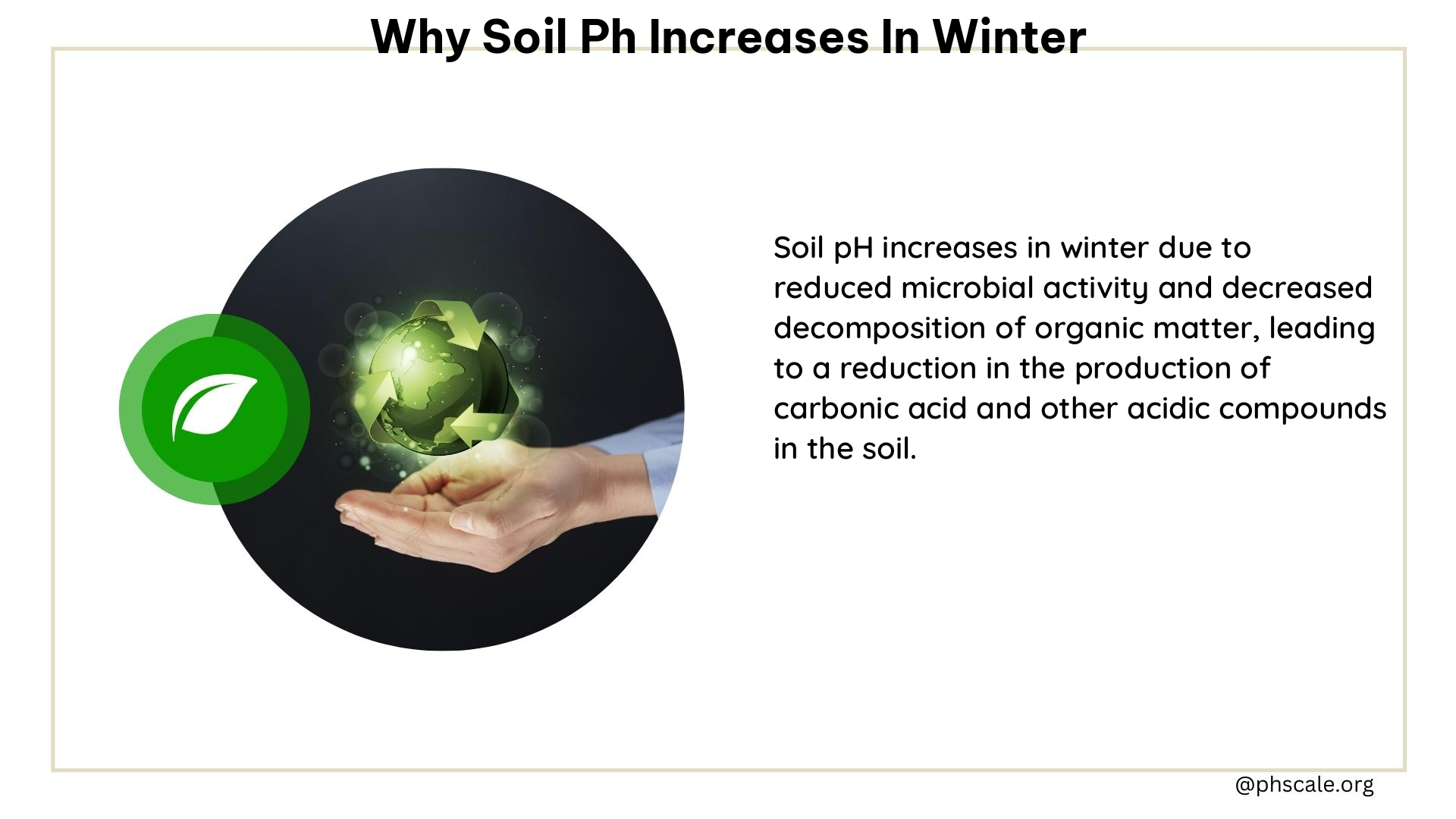Soil pH, a crucial factor in plant growth and nutrient availability, often experiences fluctuations throughout the year. One notable trend is the increase in soil pH during the winter months. This phenomenon is driven by a combination of factors, including the decomposition of organic matter, changes in moisture levels, microbial activity, temperature rise, and soil salinity. Understanding the reasons behind this seasonal shift in soil pH is essential for effective soil management and optimizing plant performance.
Decomposition of Organic Matter
During the winter months, the decomposition of organic matter accelerates due to the cooler temperatures. This process releases a greater amount of basic cations, such as calcium, magnesium, and potassium, into the soil. These cations contribute to an increase in soil pH, making the soil less acidic and more alkaline.
Moisture Levels

The decreased moisture levels observed in winter can also contribute to the rise in soil pH. With lower moisture content, the leaching of basic cations is reduced, allowing them to accumulate in the soil and increase the overall pH.
Microbial Activity
Winter temperatures can also impact the activity of soil microorganisms, leading to changes in nutrient cycling and pH levels. For instance, increased temperatures can reduce the activities of certain enzymes, such as catalase, urease, and phosphatase, which can affect nutrient availability and, consequently, soil pH.
Temperature Rise
The rise in winter temperatures can directly influence soil pH. Studies have shown that a 0.5°C to 2.0°C increase in temperature can lead to a 0.42 to 0.67 unit increase in soil pH.
Soil Salinity
Increased winter temperatures can also result in higher soil salinity, which can contribute to the rise in pH levels. This is because ions like magnesium and calcium can accumulate in the surface soil, affecting pH and nutrient availability.
Managing Soil pH during Winter
To effectively manage soil pH during the winter season, it is essential to take a proactive approach. Here are some key strategies:
- Monitor Soil pH: Regularly test the soil pH to identify any changes and address them accordingly.
- Maintain Organic Matter: Incorporate cover crops and crop residues to maintain soil organic matter, which helps buffer pH changes.
- Adjust Fertilizers: Use fertilizers that are less likely to affect soil pH, such as organic or slow-release fertilizers.
- Balance Nutrients: Ensure a balanced nutrient level to minimize the impact of pH changes on nutrient availability.
For DIY users, additional steps can be taken:
- Add Lime or Dolomitic Lime: Apply lime or dolomitic lime to raise the soil pH if it becomes too acidic.
- Use Compost: Incorporate compost to increase soil organic matter and buffer pH changes.
- Monitor Moisture: Maintain optimal moisture levels to reduce the impact of moisture on soil pH.
By understanding the reasons behind the increase in soil pH during the winter and implementing appropriate management strategies, gardeners and farmers can ensure the optimal growing conditions for their plants throughout the year.
